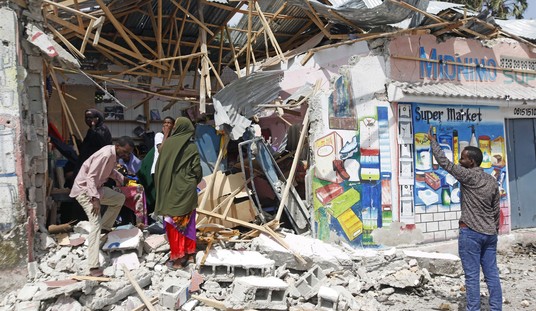Perhaps in a symbolic effort to remind all newspaper writers to toe the line or risk their careers, the New York Times is attempting to demonize Judith Miller. Ed Morrissey writes:
Reading the news about Joseph Wilson and Valerie Plame these days, one would come away thinking that if not for Judith Miller, the United States would never have gone to war with Iraq in 2003.
To debunk the conventional wisdom du jour, Ed links to a recent essay in the Washington Post by Robert Kagan, who has a long list of newspaper articles, from a wide variety of authors from the late 1990s on what a danger Saddam Hussein was, which is something we’ve discussed as well a few times. And as Morrissey adds:
In fact, the Clinton administration had made a big case about Iraq’s WMD capabilities as part of its policy of continuing military expenditures in maintaining containment of Saddam Hussein. Russia, China, and France wanted to end the sanctions on Iraq in order to resume their lucrative oil contracts within the country. Anti-war activists had shifted their focus from spotty military action to the sanctions, claiming that Clinton’s policies were killing 5,000 Iraqis a month through starvation. The Exempt Media at the time responded by writing many such stories — Kagan offers more references in his column — in order to support the Clinton policy of engagement.
The result, as Kagan notes, was that the media and public accepted the Clinton intelligence on Saddam’s WMD capability as definitive — and it matched that of Germany, France, and a number of other countries as well. Bush inherited the same information and the same conclusions, and during the first nine months of his term, continued the same policies as Clinton on Iraq. When 9/11 happened, he and Condoleezza Rice had almost completed what they called “super sanctions” as their new Iraq policy, but what amounted to a small modification in the old policy to attempt to close a few loopholes.
People keep forgetting how much 9/11 affected the calculus of thought in the administration. The surprise attacks showed that superpowers could not expect to see attacks coming in a frontal manner, or even with any warning at all. A handful of terrorists — or foreign agents of other kinds — could sneak into the country and wreak any kind of havoc. The US had only two strategies for stopping them: wait until they came here and arrest them, or stop the threats before they got here through military action. Given that the WMD everyone knew Saddam had withheld could be used by Saddam or his terrorist associates for devastating sneak attacks, and that he had refused to meet the terms of both the Gulf War cease-fire and sixteen UN resolutions, it now seemed much more prudent to remove him and use a strategy of democratization in the Middle East to pre-empt such attacks.
That history has been forgotten by the Exempt Media whose extensive Clinton-era reporting on the massive and imminent dangers of Saddam’s WMD programs has gotten conveniently overlooked in order to condemn Judith Miller and the Bush administration. The Times need look no further than their own archives and by-lines to see that Miller had ample reason to trust what her sources told her. After all, the Paper of Record had consistently reported the same thing and the editorial board had urged stronger action in response for years before she began to get her own bylines there.
That’s the New York Times, though — the paper that has ever been ready to rewrite history in order to meet its own peculiar needs.
Well, since the 1930s at least.
It’s a strategy that used to be able to work; it’s much more difficult to achieve these days, thanks to a media that’s been–blessedly–demassified.










Join the conversation as a VIP Member